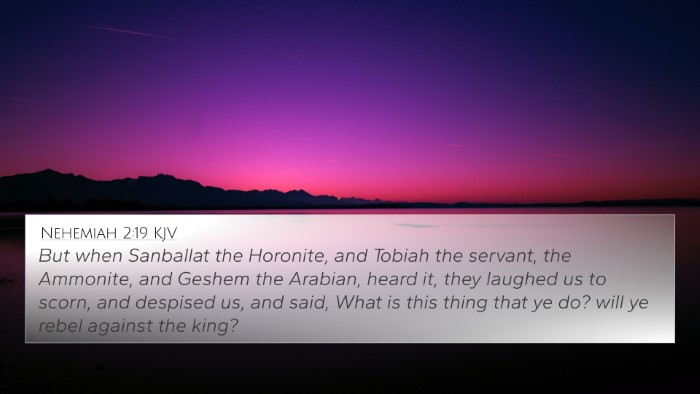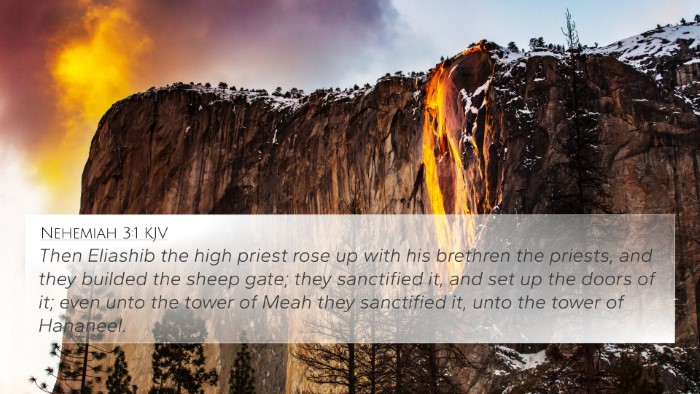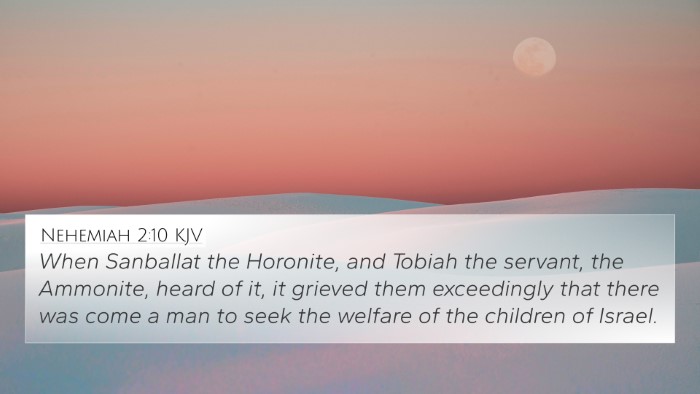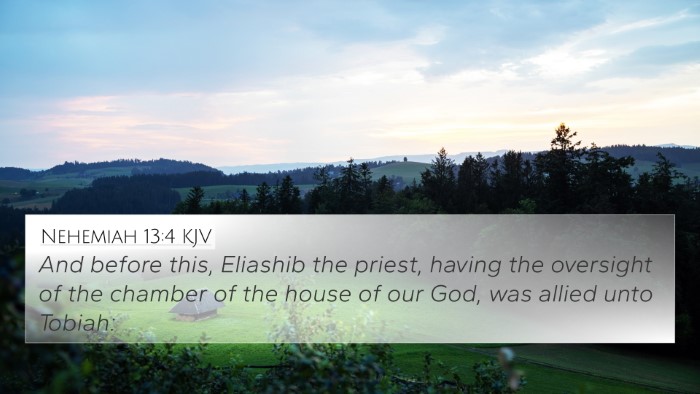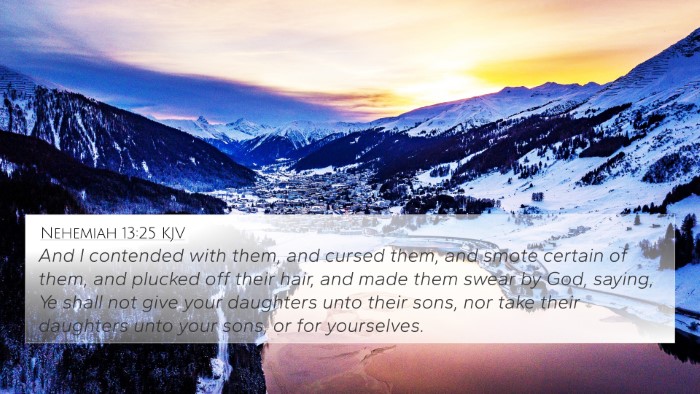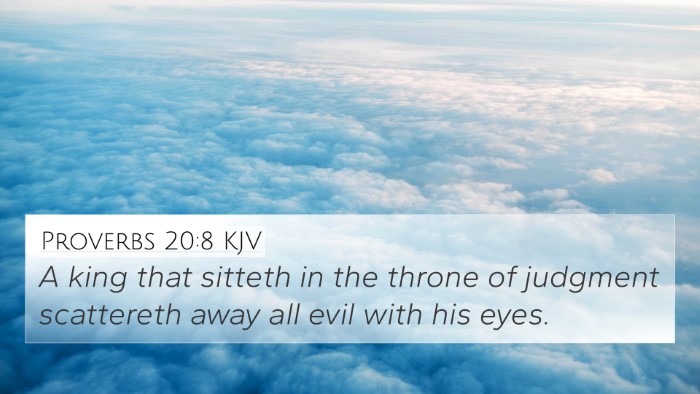Understanding Nehemiah 13:28
Nehemiah 13:28 states: "And one of the sons of Joiada, the son of Eliashib the high priest, was son-in-law to Sanballat the Horonite: therefore I chased him from me."
This verse reveals Nehemiah's strong stance against the influence of foreign alliances, particularly with those like Sanballat, who opposed the rebuilding of Jerusalem. Nehemiah’s actions highlight the significance of maintaining holiness and purity within the community.
Commentary Insights
Matthew Henry's Commentary
Matthew Henry emphasizes the importance of spiritual integrity. He underscores that Nehemiah was zealous for the welfare of God's people, showing that fellowship with those who oppose God's work should be avoided. He draws attention to how mixed relationships can lead to compromise in faith.
Albert Barnes' Notes
Albert Barnes comments on the historical context of the verse, explaining how Joiada's family ties to Sanballat represent a significant breach of covenant loyalty. Barnes notes that such ties could weaken the religious reforms Nehemiah was implementing, validating Nehemiah's decision to expel Joiada's son.
Adam Clarke's Commentary
Adam Clarke delves into the implications of this verse regarding the temple leadership and their associations. He observes that Nehemiah's action was necessary to preserve the sanctity of the priesthood and prevent external influences that could corrupt their mission.
Key Themes and Lessons
- Spiritual Integrity: The need to uphold spiritual values against contrary influences.
- Community Purity: The importance of maintaining a pure community in faith and practice.
- Leadership Responsibility: Leaders are accountable for guarding against harmful influences in their congregation.
- Foreign Alliances: The dangers of aligning with those who oppose God’s purposes.
- Zeal for God’s Work: A call to be zealous and proactive in protecting one’s faith community.
Bible Verse Cross-References
Understanding Nehemiah 13:28 also benefits from recognizing its connections with other scriptures that emphasize similar themes. Here are some pertinent cross-references:
- 1 Corinthians 15:33: "Do not be deceived: ‘Bad company corrupts good morals.’" - Highlights the moral implications of relationships.
- 2 Corinthians 6:14: "Do not be unequally yoked with unbelievers..." - Encouragement against partnerships that could compromise faith.
- Ezra 4:1-3: - Details the opposition faced by the Jews during the rebuilding, showcasing the historical backdrop of Nehemiah's actions.
- Proverbs 1:10: "My son, if sinners entice you, do not consent." - A warning to avoid negative influences.
- Malachi 2:11: "Judah has dealt treacherously, and an abomination has been committed in Israel and in Jerusalem..." - Addresses the betrayal within God’s community.
- Nehemiah 2:19: “But when Sanballat the Horonite, and Tobiah the servant, the Ammonite, and Geshem the Arabian, heard it, they laughed us to scorn...” - Contextualizes the antagonism against Nehemiah.
- Galatians 1:10: "...If I yet pleased men, I should not be the servant of Christ." - The need for prioritizing divine approval over human relationships.
- Romans 16:17: "Now I beseech you, brethren, mark them which cause divisions and offenses contrary to the doctrine which ye have learned..." - Instruction on recognizing and avoiding divisive influences.
- Deuteronomy 7:3-4: "Neither shalt thou make marriages with them; thy daughter thou shalt not give unto his son..." - God's directive against intermarrying to prevent the dilution of faith.
- 1 Peter 5:8: "Be sober, be vigilant; because your adversary the devil, as a roaring lion, walketh about, seeking whom he may devour." - A reminder of the dangers posed by adversarial forces.
Conclusion
Nehemiah 13:28 serves as a powerful reminder of the necessity for purity in leadership and adherence to God’s commandments. The cross-references illuminate how interconnected the themes of separation, integrity, and community health are throughout the Bible. Understanding these connections not only enriches one’s theological framework but also enhances personal application in the light of scripture. For those interested in Bible verse cross-references, tools such as a Bible concordance, Bible cross-reference guide, and comprehensive Bible cross-reference materials can be indispensable in studying these thematic connections.



